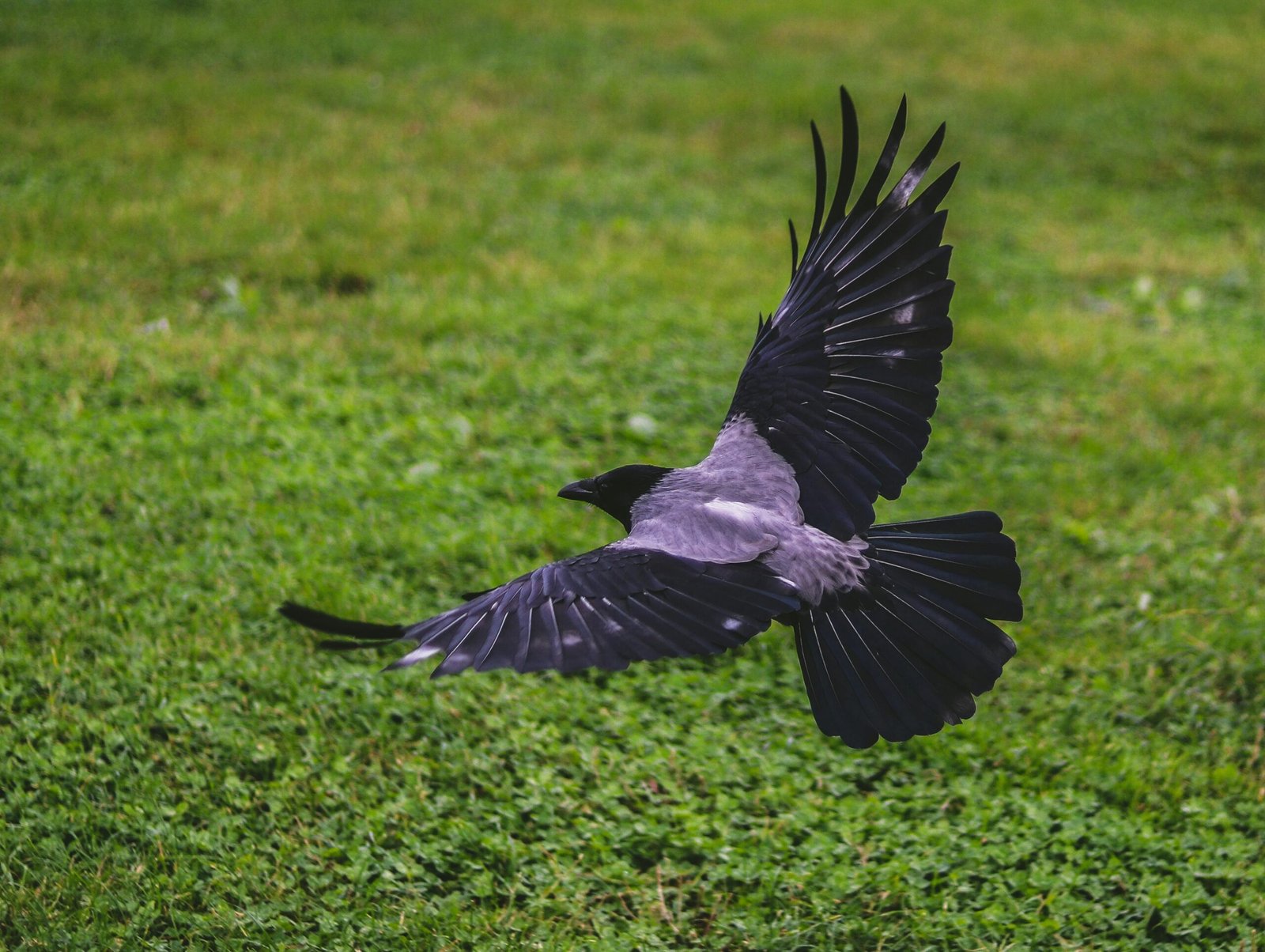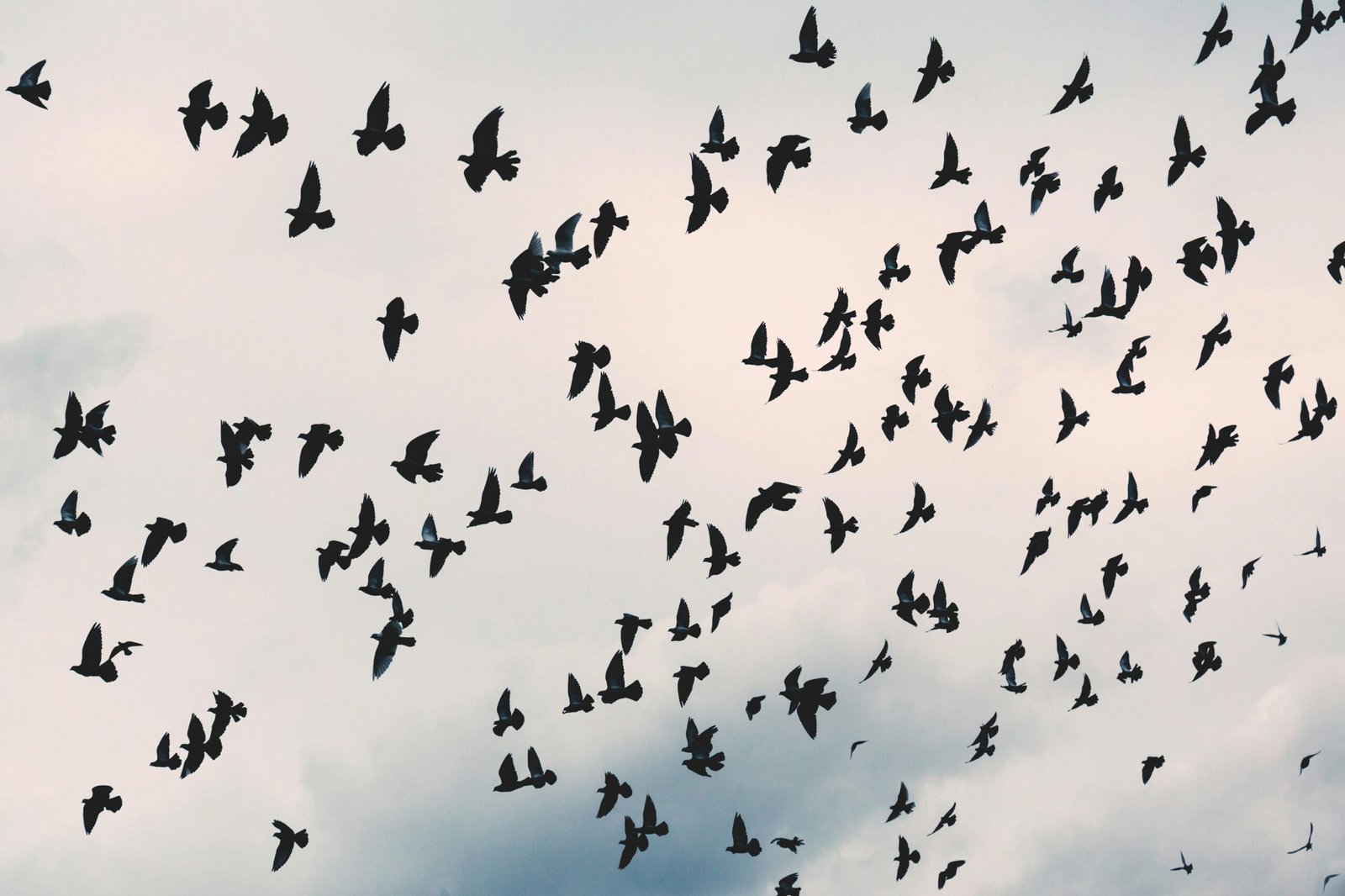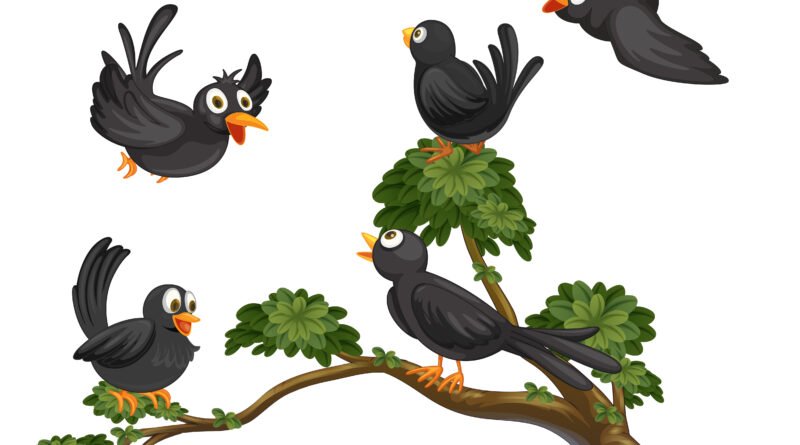Clever Crows: Problem-Solving Antics
Crows, with their glossy black feathers and sharp calls, are a familiar sight in many parts of the world. But these intelligent birds are much more than just scavengers. Clever crows possess a remarkable level of cognitive ability, surpassing even some primates in their problem-solving skills and capacity for complex thought. Let’s delve into the fascinating world of crows and explore 10 incredible facts that highlight their intelligence and unique behaviors.
1. Tools of the Trade: Crows as Master Manipulators
Unlike most birds, crows have been observed using tools to their advantage. One famous example involves crows dropping nuts onto hard surfaces, like roads, to crack them open and access the delicious insides. They understand the cause-and-effect relationship between the impact and the cracked shell, showcasing a level of tool use uncommon in the avian world. Additionally, crows have been observed using sticks to fish out insects from cracks and crevices, demonstrating the flexibility of their problem-solving skills.
2. Planning for the Future: Food Caching and Delayed Gratification
Crows are not impulsive eaters. They exhibit a remarkable ability to plan for the future by caching food. Crows will bury excess food in the ground or hide it in nooks and crannies, ensuring they have a reliable source of nourishment during times of scarcity. This behavior requires crows to not only remember the location of their hidden stashes but also to anticipate future needs, a level of cognitive ability rarely seen in the animal kingdom.

3. The Power of Memory: Faces, Places, and Feuds
Crows have an exceptional memory. Studies have shown they can recognize human faces for years, potentially harboring grudges against those who have wronged them. This ability to remember specific individuals and past interactions suggests a complex understanding of social dynamics and a capacity for holding long-term memories. Crows have also been observed remembering the location of hidden food caches for months, a feat that requires remarkable spatial memory.
4. The Crow Court: Complex Social Hierarchies and Teamwork
Crows are highly social creatures that live in complex colonies. Within these colonies, crows establish social hierarchies, with dominant birds holding more power and access to resources. They communicate through a variety of vocalizations, including squawks, caws, and even mimicry. These vocalizations are believed to convey information about food sources, threats, and social standing within the group. Crows also exhibit remarkable teamwork, cooperating to chase away predators and defend their territories.
5. The Language of Crows: A Debate Rages On
The extent to which crows communicate and use vocalizations as a form of “language” is a subject of ongoing debate. While crows do not possess the same level of vocal complexity as humans or some primates, their diverse vocalizations suggest a sophisticated communication system with meaning beyond basic calls. Researchers are actively studying crow communication and exploring the possibility that crows possess some form of rudimentary language.
6. Funeral Rites and Emotional Intelligence
Crows exhibit behaviors that suggest an understanding of death and grief. They have been observed gathering around dead crows, appearing to mourn their fallen companions. Some scientists believe this may be a form of social learning, where young crows learn about mortality through observing the behavior of adults. Additionally, crows exhibit a range of emotions, including curiosity, playfulness, and even aggression.

7. Playful Feathered Friends: Crows and Games
Clever crows are not all work and no play. These intelligent birds have been observed engaging in playful behavior, such as sliding down snowy hills on their backs and chasing each other in mid-air. This playful behavior appears to serve a social purpose, strengthening bonds within the crow community and promoting cooperative behaviors.
8. Crows and Culture: Adapting to Changing Environments
Crows are remarkably adaptable creatures. They thrive in a wide range of habitats, from urban landscapes to rural forests. Clever crows have been observed modifying their behavior to exploit new resources, such as using traffic lights to crack walnuts in crosswalks. This capacity for cultural transmission suggests that crows learn from each other and adapt their behaviors based on their environment. For more in-depth information, visit here.
9. Crows and Conservation: A Vital Role in the Ecosystem
Crows play a crucial role in the ecosystem. As scavengers, they help to clean up carcasses and prevent the spread of disease. They also control populations of smaller insects and rodents, maintaining a balanced ecosystem. However, clever crows population can sometimes come into conflict with human settlements. Effective crow management strategies are essential to ensure the well-being of both crows and humans.
10. A Window into Animal Intelligence
Caledonian crows, native to New Caledonia, are renowned for their remarkable intelligence and tool-making abilities. These birds create and use tools to extract insects from wood, demonstrating problem-solving skills comparable to those of primates. Studies have shown that Caledonian crows can plan their actions, use multiple tools in sequence, and understand the concept of causality. Their sophisticated behavior provides valuable insights into animal cognition and the evolution of intelligence. This has made them a focal point of research in animal behavior and cognitive science. Explore more esports insights on our esports blog.




